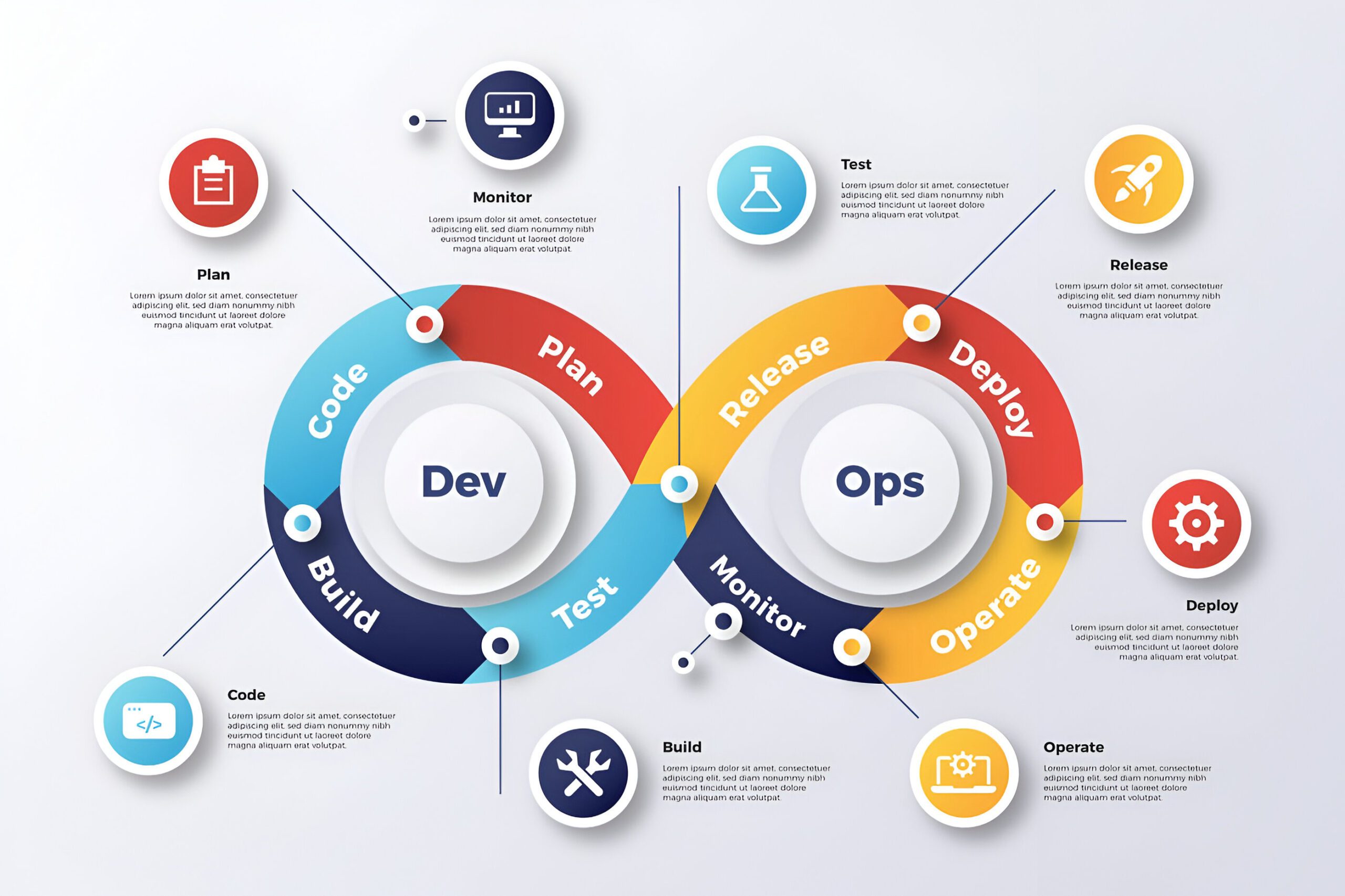In today’s fast-paced world, businesses are continually striving for greater agility, collaboration, and faster delivery. Enter DevOps—a game-changing approach in IT that helps teams achieve all of this and more. At its core, DevOps is all about combining development (Dev) and operations (Ops) in a way that fosters collaboration and drives business growth. It’s not just a collection of tools—it’s a culture that aligns cross-functional teams toward common goals.
As companies compete to stay ahead, DevOps is becoming a critical strategy for modern IT infrastructures. But what exactly does DevOps mean, and how does it shape today’s tech landscape? Let’s break it down.
What is DevOps?
DevOps is a collaborative culture and a set of practices that bring together software development and IT operations. Traditionally, development and operations teams worked in silos, leading to inefficiencies and slow release cycles. DevOps aims to break down these barriers by encouraging collaboration at every stage of the software development lifecycle (SDLC).
The key principles of DevOps include:
- Collaboration & Communication: Uniting development, operations, and other stakeholders.
- Automation: Streamlining processes from coding to deployment for faster, error-free releases.
- CI/CD: Enabling continuous integration and deployment to accelerate releases.
- Monitoring & Feedback: Constantly gathering data for iterative improvements.
How DevOps Transforms IT Infrastructure
DevOps is reshaping how IT infrastructure works. Gone are the days of rigid, manual processes. Today’s infrastructure is dynamic, scalable, and adaptable, and DevOps plays a huge part in this transformation.
1. Automation of Infrastructure Management
Automation is one of the most significant changes that DevOps brings to IT. With tools like Terraform, Ansible, and Puppet, teams can automate infrastructure provisioning and management. This not only ensures consistency across environments but also reduces human error and accelerates deployment.
Infrastructure as Code (IaC) is central to DevOps, allowing teams to define infrastructure through code, version control it, and deploy it like any other software application.
2. Speed & Agility
DevOps makes the entire software development lifecycle faster and more agile. With continuous integration (CI) and continuous deployment (CD), companies can release software updates more frequently, reducing downtime and enabling IT teams to scale services quickly based on business demand.
Cloud services like AWS, Azure, and Google Cloud support this agility by providing DevOps-friendly features, helping businesses dynamically scale their infrastructure based on real-time needs.
3. Scalability & Flexibility
Cloud computing plays a massive role in DevOps’ success. With containerization technologies like Docker and orchestration tools like Kubernetes, businesses can scale up or down in real-time without manual intervention.
Thanks to DevOps, organizations can utilize Infrastructure as a Service (IaaS) and Platform as a Service (PaaS) to easily scale their resources while optimizing cost and performance.
4. Continuous Monitoring & Performance Optimization
Monitoring systems and optimizing performance are at the heart of DevOps. By continuously tracking system health and application performance through tools like Prometheus, Grafana, and Datadog, DevOps teams can quickly address issues before they affect users, ensuring a smooth experience.
5. Security (DevSecOps)
Security isn’t an afterthought in DevOps—it’s built-in from the start. The concept of DevSecOps integrates security throughout the CI/CD pipeline, automating security scans and vulnerability assessments. This ensures that security is maintained without slowing down the delivery speed.
The Benefits of DevOps in Modern IT Infrastructure
Implementing DevOps can transform your IT infrastructure in a multitude of ways:
1. Increased Efficiency
Automation reduces manual work, eliminates errors, and streamlines workflows, allowing teams to focus on strategic tasks instead of repetitive chores.
2. Greater Collaboration
DevOps fosters a culture of collaboration between development and operations teams, improving communication and making the deployment process smoother.
3. Enhanced Quality & Reliability
Continuous testing, automated monitoring, and constant feedback loops help catch issues early, ensuring stable releases and improved infrastructure reliability.
4. Faster Time-to-Market
DevOps accelerates the software delivery pipeline, enabling businesses to roll out new features faster and stay ahead of competitors.
5. Better Resource Utilization
Cloud services allow businesses to dynamically allocate resources based on demand, optimizing costs and ensuring performance.
Challenges & Considerations
While DevOps brings many advantages, adopting it isn’t without challenges:
- Cultural Resistance: Shifting to a DevOps mindset can be difficult, particularly in organizations with deep-rooted silos.
- Skill Gaps: DevOps requires expertise in cloud technologies, automation tools, and CI/CD pipelines, and finding the right talent can be a challenge.
- Tool Overload: With so many tools available, organizations must carefully select the best options for their specific needs.
Conclusion
DevOps is more than just a buzzword—it’s a critical strategy that can help businesses stay competitive in today’s digital-first world. By promoting collaboration, automating processes, and integrating feedback loops, DevOps enables companies to build more scalable, agile, and secure IT infrastructures.
As cloud technologies, containerization, and automation continue to evolve, DevOps will only grow in importance. Companies that embrace DevOps gain a competitive advantage through faster time-to-market, increased efficiency, and a culture of continuous improvement—essential elements for success in the ever-changing digital landscape.
At Univisionz, we understand the importance of adapting to modern IT practices, which is why we focus on helping businesses leverage DevOps for faster, more efficient, and secure website development and maintenance.




